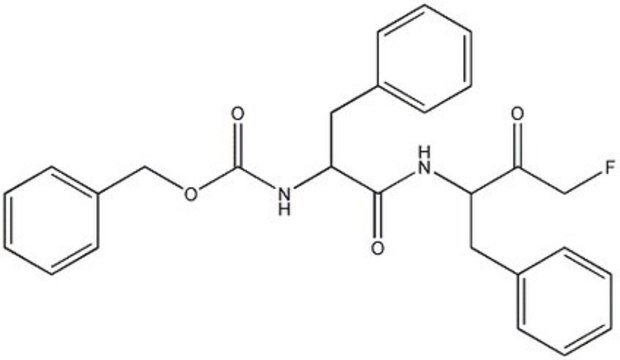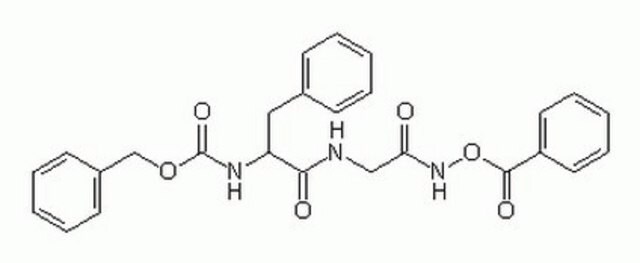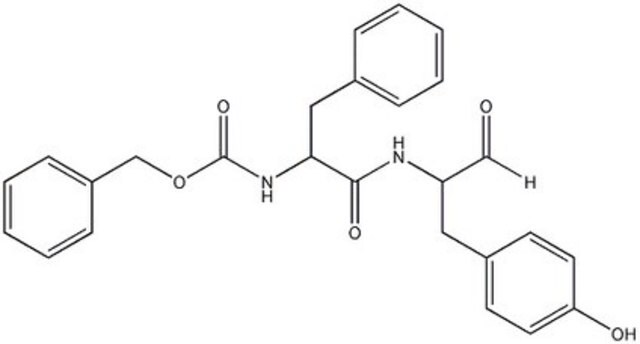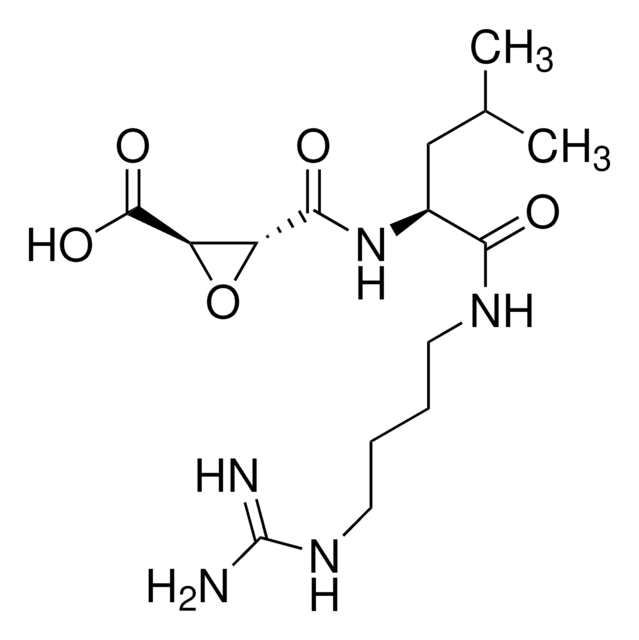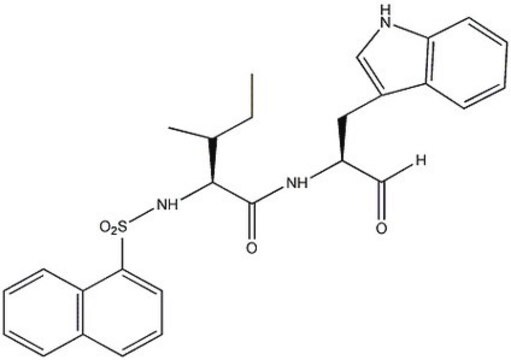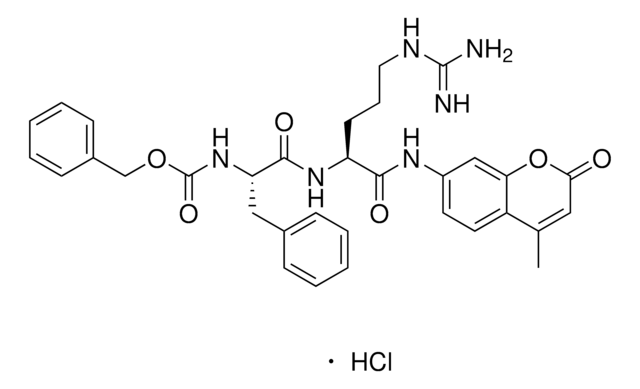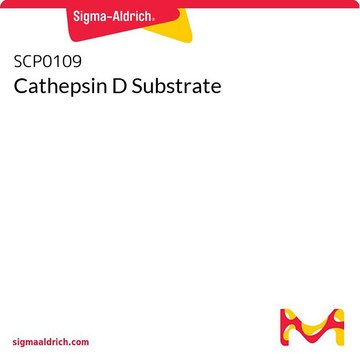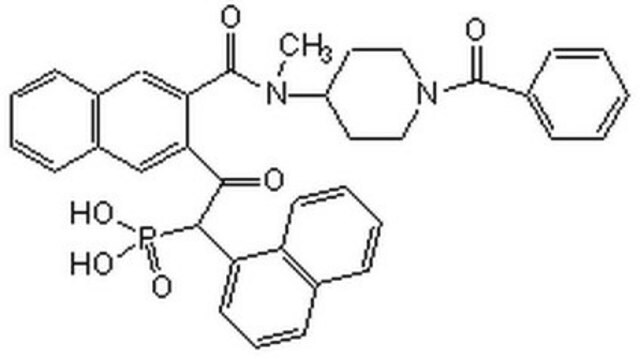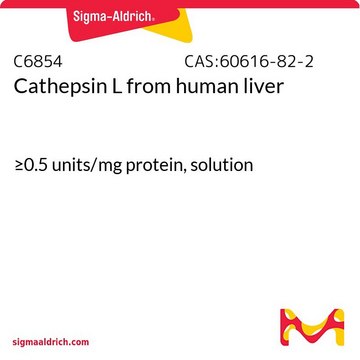SCP0110
Cathepsin L Inhibitor
Iniciar sesiónpara Ver la Fijación de precios por contrato y de la organización
About This Item
Fórmula empírica (notación de Hill):
C35H59N11O5
Peso molecular:
713.91
UNSPSC Code:
12352200
NACRES:
NA.32
Productos recomendados
assay
≥95% (HPLC)
form
lyophilized
composition
Peptide Content, ≥55%
storage condition
protect from light
storage temp.
−20°C
Amino Acid Sequence
Arg-Lys-Leu-Leu-Trp-NH2
General description
Cathepsin L Inhibitor is a histone H3-processing enzyme. It is important for maintaining epidermal homeostasis, regular hair follicle morphogenesis and cycling. Cathepsin L is involved in protein degradation. It might regulate normal functioning of the immune system. Cathepsin L regulates the death of macrophages, necrotic core formation and development of atherosclerotic plaque instability.
Application
Cathepsin L is a lysosomal cysteine proteinase that metabolizes collagens and elastins. The roles and activity of Cathepsin L can be studied with the aid of peptide inhibitors such as the pentapeptide amide RKLLW-NH2 (Arg-Lys-Leu-Leu-Trp-NH2).
Storage Class
11 - Combustible Solids
wgk_germany
WGK 3
flash_point_f
Not applicable
flash_point_c
Not applicable
Elija entre una de las versiones más recientes:
Certificados de análisis (COA)
Lot/Batch Number
¿No ve la versión correcta?
Si necesita una versión concreta, puede buscar un certificado específico por el número de lote.
¿Ya tiene este producto?
Encuentre la documentación para los productos que ha comprado recientemente en la Biblioteca de documentos.
Los clientes también vieron
Protease signalling: the cutting edge
Turk B, et al.
The Embo Journal, 31(7), 1630-1643 (2012)
Cathepsin L expression and regulation in human abdominal aortic aneurysm, atherosclerosis, and vascular cells
Liu J, et al.
Atherosclerosis, 184(2), 302-311 (2006)
Cathepsin L is significantly associated with apoptosis and plaque destabilization in human atherosclerosis
Li W, et al.
Atherosclerosis, 202(1), 92-102 (2009)
V Turk et al.
The EMBO journal, 20(17), 4629-4633 (2001-09-05)
From their discovery in the first half of the 20th century, lysosomal cysteine proteases have come a long way: from being the enzymes non-selectively degrading proteins in lysosomes to being those responsible for a number of important cellular processes. Some
A Brinker et al.
European journal of biochemistry, 267(16), 5085-5092 (2000-08-10)
By screening a combinatorial pentapeptide amide collection in an inhibition assay, we systematically evaluated the potential of 19 proteinogenic amino acids and seven nonproteinogenic amino acids to serve as building blocks for inhibitors of human cathepsin L. Particularly efficient were
Nuestro equipo de científicos tiene experiencia en todas las áreas de investigación: Ciencias de la vida, Ciencia de los materiales, Síntesis química, Cromatografía, Analítica y muchas otras.
Póngase en contacto con el Servicio técnico